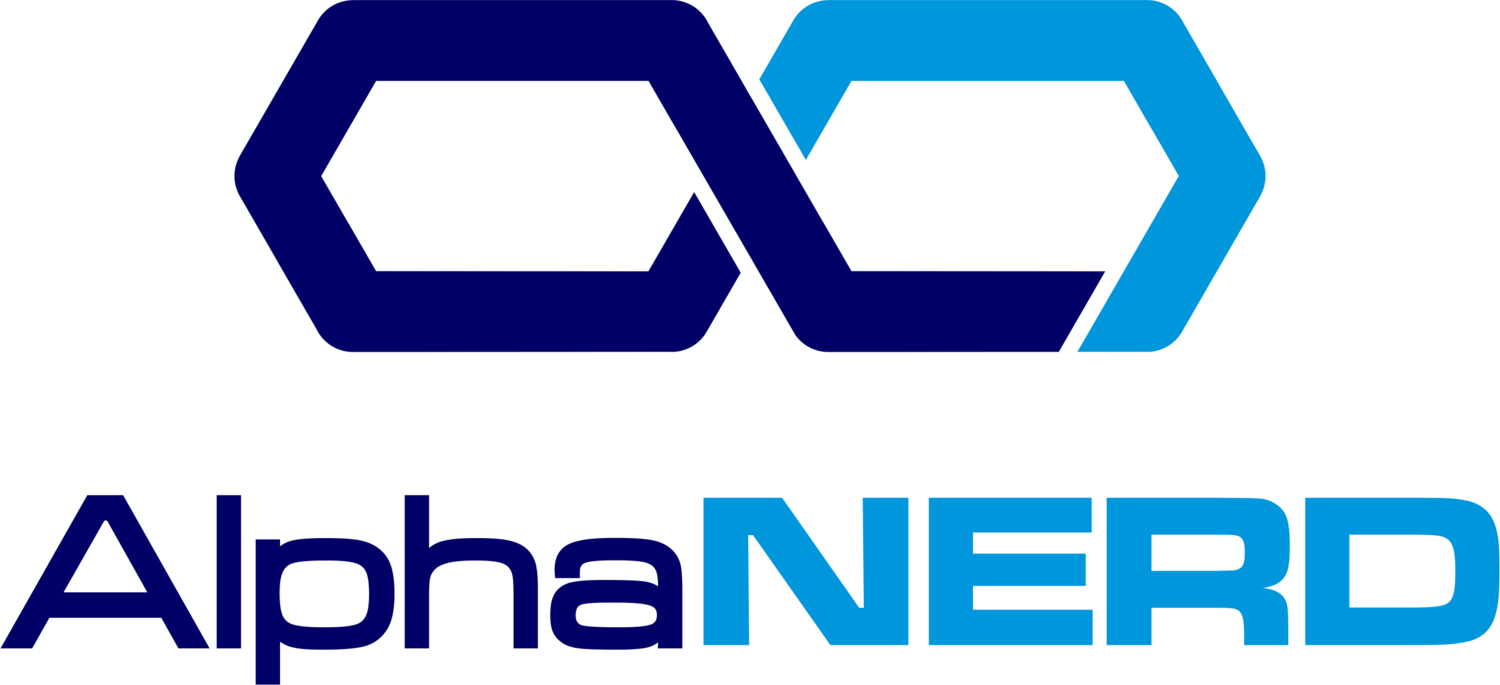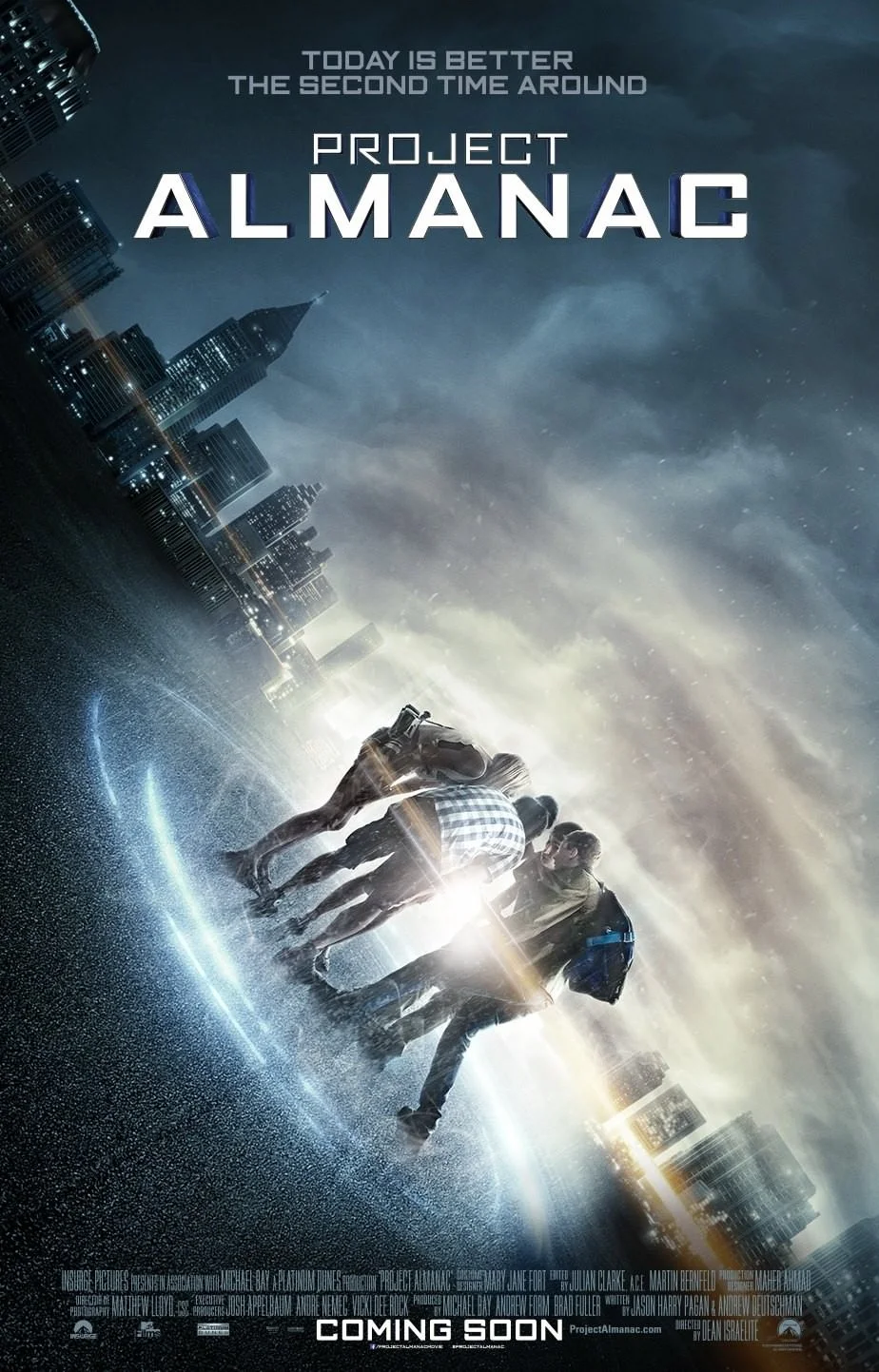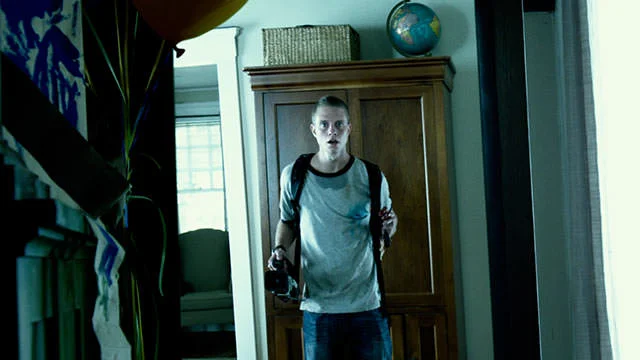In layman's terms, Project Almanac is nothing more than a dumbed down version of Primer, but marketed for the Cloverfield crowd. It’s sort of fun, but undeniably flawed - the film has an intriguing time-travel premise that it commits to for over half the movie’s run time before just flat out giving up on it. You get the sense that trying to maintain the twisting timeline was just too exhausting, and the creative team of Platinum Dunes (Michael Bay’s company) pretty much assumed its core audience that showed wouldn’t sweat the details and just decided, "lets show more concert footage of these kids partying". Almanac basically pretends to be intelligent long enough to get my hopes up, then reveals its true colors as a superficial, silly genre rip-off aimed at teens (Michael Bay co-produces, while MTV Films and Platinum Dunes present, so shame on me for not anticipating the inevitable.) I’ll admit it when I say I had my hopes up for this. After over a year delay due to poor test screen showings, a name change (originally titled Welcome To Yesterday) , they then launched a late night screening at Comic Con last year that I unfortunately had to miss. But from what I heard, was very well received, so I went in with a hopeful approach that this would surprise me.
The movie’s hero is David Raskin (Jonny Weston), a likable high school inventor/bookworm whose delight over an MIT acceptance is dashed by the knowledge that his single mom can’t afford the tuition. While digging through his deceased dad’s unfinished research in hopes of earning a new scholarship, David unearths an old video camera that has tape from his seventh birthday party. The nostalgia of the milestone moment is drained, however, once David spies his current form walking through the background of the 10-year-old footage.
How is that possible? David and his tech-savvy teen cohorts start digging through the dead dad’s basement laboratory – which, I suppose, hasn’t been touched in the decade since dad’s death, but stop asking questions and just go with it, OK? They coincidentally discover that David’s father was dangerously close to completing work on a temporal relocation device. That means time travel. Since they have the blueprints in their hands, David and his crew begin to experiment, and before you can say flux capacitor, they’re successfully traveling back in time (with increasingly disastrous results).
So far, so good. David, it should be noted, is a welcome role model in the teen-thriller genre, favoring intelligent pursuits (like an MIT scholarship) and getting by on brainpower in an age of decreased attention spans. His cohorts amount to replicas of the Big Bang Theory cast, but the “team” has good chemistry and first-time director Dean Israelite keeps his foot on the gas pedal; so we barely have time – no pun intended – to stop and ponder at all these plot holes that could pull Project Almanac’s plug. The movie does feel like a bit of a relic for its unnecessary reliance on hand-held cameras – the bane of the tired found-footage genre. There’s no credible reason given for the use of “found footage” in Project Almanac, and the gimmick adds nothing original to the already interesting premise they are giving us. Hell if anything, it’s a visual obstacle to endure, and one that distracts from what could have been a smarter-than-expected time travel film.
From here you can pinpoint the moment Project Almanac loses its way. The movie’s fork-in-the-road moment is the live concert featured heavily in the trailers – a sequence that feels like it runs for 30 minutes, and a blatant rough patch in what was a swiftly-moving, glossy but passable exercise. It’s during this rowdy excursion that David fails to capitalize on his one moment to consummate a relationship with Jessie (Sofia Black-D’Elia), the hottest member of their Scooby Gang. Saturated in regret that he didn’t get to tap that ass, David breaks his own rules to travel back to that moment and live the concert again. His new actions lead to romance, but as anyone who has watched a time-travel movie knows, he alters the timeline.
That, in a nutshell, is what this movie is about... Winning over the hot girl? No solving the mystery of why David was even at his seventh birthday party, or the tantalizing clues pertaining to David’s father’s research? I’m being serious when I say the starting premise of this film was dripping with potential, and could have led to a much better movie if properly explored. Instead, it’s shelved so that the Catfish-watching crowd can watch actors pretending to have fun during a lengthy party scene. But this was a Michael Bay produced film so again, should have known better. Sad.
In its closing moments, Project Almanac tries to generate tension by butterfly-effecting the audience into submission, but by the time Project Almanac rushes to its very anti-climactic ending, you’ll be wishing you had your own time machine to jump back about 30 minutes and correct a few of the movie’s crucial mistakes.
This script name-drops numerous time-travel staples throughout the movie, referencing everything from Rian Johnson’s Looper to Groundhog Day and Bill & Ted. If we’re lucky, a butterfly effect of Almanac will be curious audience members renting those great films, to see how time travel should be handled on screen. 4/10



